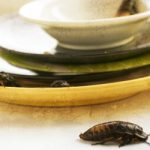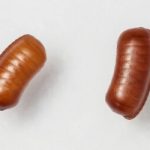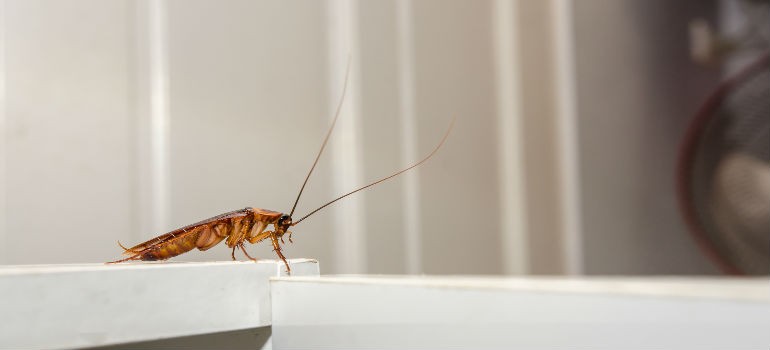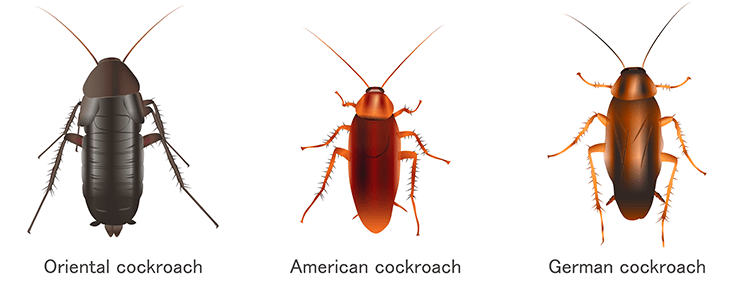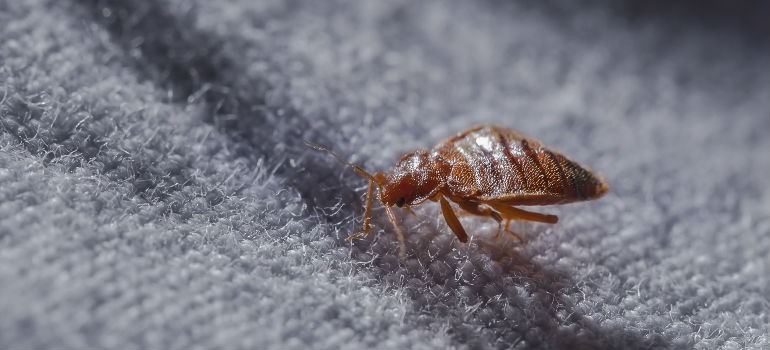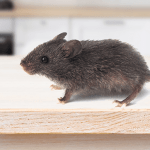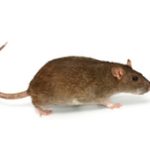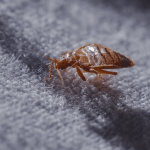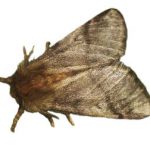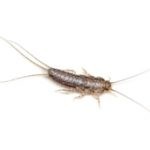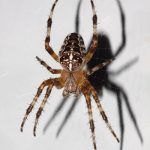Are Cockroaches and Their Bites Dangerous to Humans?
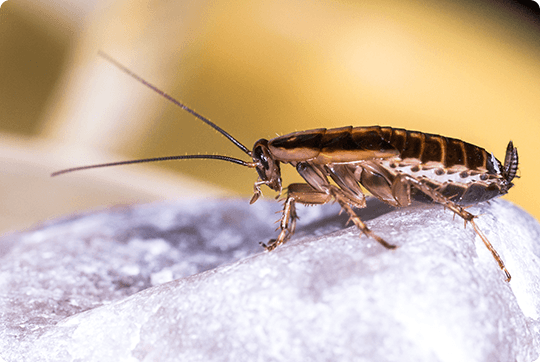
The cockroach is a resilient pest, commonly infesting homes and businesses. People often wonder if cockroaches are harmful to humans. Yes, cockroaches pose a serious health risk, including disease transmission and food contamination. It is rare for cockroaches to bite humans, but they can still cause a lot of damage.
Do cockroaches bite?
Cockroaches can bite, but it’s rare. When there is a lack of food sources, they may bite humans. Typically, they bite exposed skin such as fingers, hands, feet, and faces, causing redness, irritation, or minor swelling. Though cockroaches themselves can spread bacteria and allergens, cockroach bites are not venomous and do not transmit diseases.
Symptoms of a cockroach bite include redness, swelling, and itching. It’s annoying, but it’s rarely serious. Even though it’s itchy, don’t scratch a cockroach bite since it could make it worse and lead to infection. Bites from cockroaches heal quickly, but you should protect the area and keep it clean.
What does a cockroach bite look like
Cockroach bites look a lot like bed bug bites due to their form and size. The bites of cockroaches usually appear as a small, red bump on the skin. Usually, the bites are larger than the bed bugs, measuring about 1-4 mm and don’t occur in clusters. Most likely, you will only feel a slight pinch when it happens and the discomfort after will not last more than a few seconds.
Cold compresses and calamine lotion can help reduce local pain and swelling at the bite site. Antihistamines can also relieve swelling and itching.
How strong is a cockroach bite?
A cockroach’s bite is surprisingly powerful, since its mandibles can exert far more force than one would expect, given its small size. It is estimated that cockroaches bite with a force 50 times greater than their own weight. A cockroach’s bite is about five times stronger than a human’s jaw force.
This adds up to all their other superpowers that we hate so much, such as being practically invincible, living up to 2 weeks without head and run like the wind across the ceiling.
Symptoms of a cockroach bite
You’ve seen some bites on you or on someone else in your family and you are wondering if they are caused by a cockroach or some other insect. First, you have to know all the symptoms, including the allergic ones. An allergic reaction occurs when your white blood cells attack the cockroach allergens. It can happen when your immune system reacts to the proteins contained in the saliva, faeces and the body of the insect, very often through inhalation.
Now that you know how you can get an allergic reaction, related to a cockroach infestation, it’s time to learn how to identify a cockroach bite.
- Redness and swelling – The bitten area may become red, slightly swollen, and irritated.
- Itching and discomfort – Mild to moderate itching is common, similar to other insect bites.
- Skin irritation – Some people may experience minor rashes or inflammation around the bite.
- Allergic reactions – Individuals sensitive to cockroach allergens may develop excessive swelling, severe itching, or a rash.
- Infection risk – If the bite is scratched excessively, bacteria from the cockroach or hands may lead to an infection, causing pus, pain, and increased redness.
It’s really important to understand that just as with a mosquito bite, or any other bite, scratching is absolutely forbidden. It can cause inflammation and other complications. If you have asthma, it is very likely that you will have an asthma attack. Also, it’s not uncommon for people with other types of allergies to experience anaphylaxis. This is a reaction that involves lowered blood pressure, shortness of breath and complete shock, which may lead to a fatal outcome.
Which species of roaches bite the most?
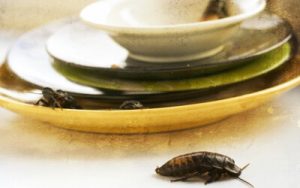
All roaches have jaws and all roaches bite but some do it more often than others… Just because they can be found more frequently around human homes. The American, the Australian and the German roaches are the most known biters among other types. The after-effects are pretty similar and most likely, you will not be able to notice any difference. In the UK, the most common types of roaches are American and German cockroaches.
Can cockroaches transmit diseases?
Yes, cockroaches can transmit diseases. While they do not directly spread diseases through bites, they carry bacteria, viruses, and parasites on their bodies and in their droppings. Cockroach infestations can cause illnesses. When cockroaches scavenge in drains, sewers, and garbage, they pick up harmful bacteria and pathogens, which they transfer to food, utensils, and surfaces. This can lead to infections such as:
- Gastroenteritis – Inflammation of the stomach and intestines, leading to nausea and diarrhoea.
- Dysentery – Severe diarrhoea caused by bacterial infections.
- Salmonellosis – A type of food poisoning resulting in fever, vomiting, and cramps.
- Staphylococcus and Streptococcus infections – Bacterial infections that can cause skin and respiratory issues.
To reduce the risk of cockroach-borne illnesses, proper pest control, hygiene, and food storage are essential.
Cockroach contamination and food poisoning
Cockroaches are major carriers of harmful bacteria and pathogens that can lead to food poisoning. They infest kitchens, pantries, and food storage areas, contaminating surfaces and ingredients with disease-causing microorganisms. Cockroaches pick up bacteria such as Salmonella and E. coli on their legs and bodies from garbage, sewage, and decaying matter, spreading them to food and surfaces. Cockroaches shed their exoskeletons and secrete saliva, both of which can harbour allergens and bacteria. Poop of cockroaches contain harmful pathogens that can infect anything they come into contact with.
Are you dealing with a pest infestation?
You don’t have to be alone in the battle against pests. Hire a professional pest expert!
Are cockroaches harmful for babies and pets?
Yes, cockroaches pose a greater risk to babies and pets due to their weaker immune systems. Infants can develop strong allergic reactions to cockroach droppings, while pets may suffer from digestive issues if they ingest contaminated food. Cockroaches can contaminate food and utensils with bacteria, which is a risk to babies who are just starting to eat solids. Cockroach saliva, faeces, and shed skin contain allergens that can trigger respiratory issues, including asthma and other allergic reactions in babies.
While cockroaches themselves are not usually toxic, pets may ingest cockroaches or cockroach baits, which can lead to poisoning. Also, pets, especially those with sensitivities, may suffer allergic reactions to cockroach allergens, leading to skin irritation, respiratory issues, or digestive problems.
Is it bad if a cockroach touches you?
A cockroach touching you is not harmful, but it may cause discomfort or anxiety if it is unpleasant. Many people experience disgust, anxiety, or fear when a cockroach touches them, which can cause stress or discomfort, even if no physical harm occurs.
However, cockroaches carry harmful bacteria on their bodies. If a cockroach touches your skin, it could transfer these bacteria, increasing the risk of infection if they come into contact with open wounds or sensitive areas.
Safe cockroach control for homes
Pest exterminators deal with cockroaches using a variety of methods to eliminate infestations effectively. Cockroach baits and gel formulations are placed in strategic areas. The cockroaches consume the bait, return to their hiding places, and die. The bait may also spread to other cockroaches, helping to eliminate the colony.
In some cases, pest controllers use insecticidal dusts in areas that are difficult to treat with sprays. These dusts stick to cockroaches’ bodies and are ingested during grooming, eventually killing them. In severe cases, fumigation or whole-house treatments may be required. This involves releasing a gas that penetrates hard-to-reach areas, effectively eliminating cockroaches.
We only provide valuable information regarding cockroaches and the possible diseases they can spread. But we as a commercial service provider cannot give you a medical advice.



